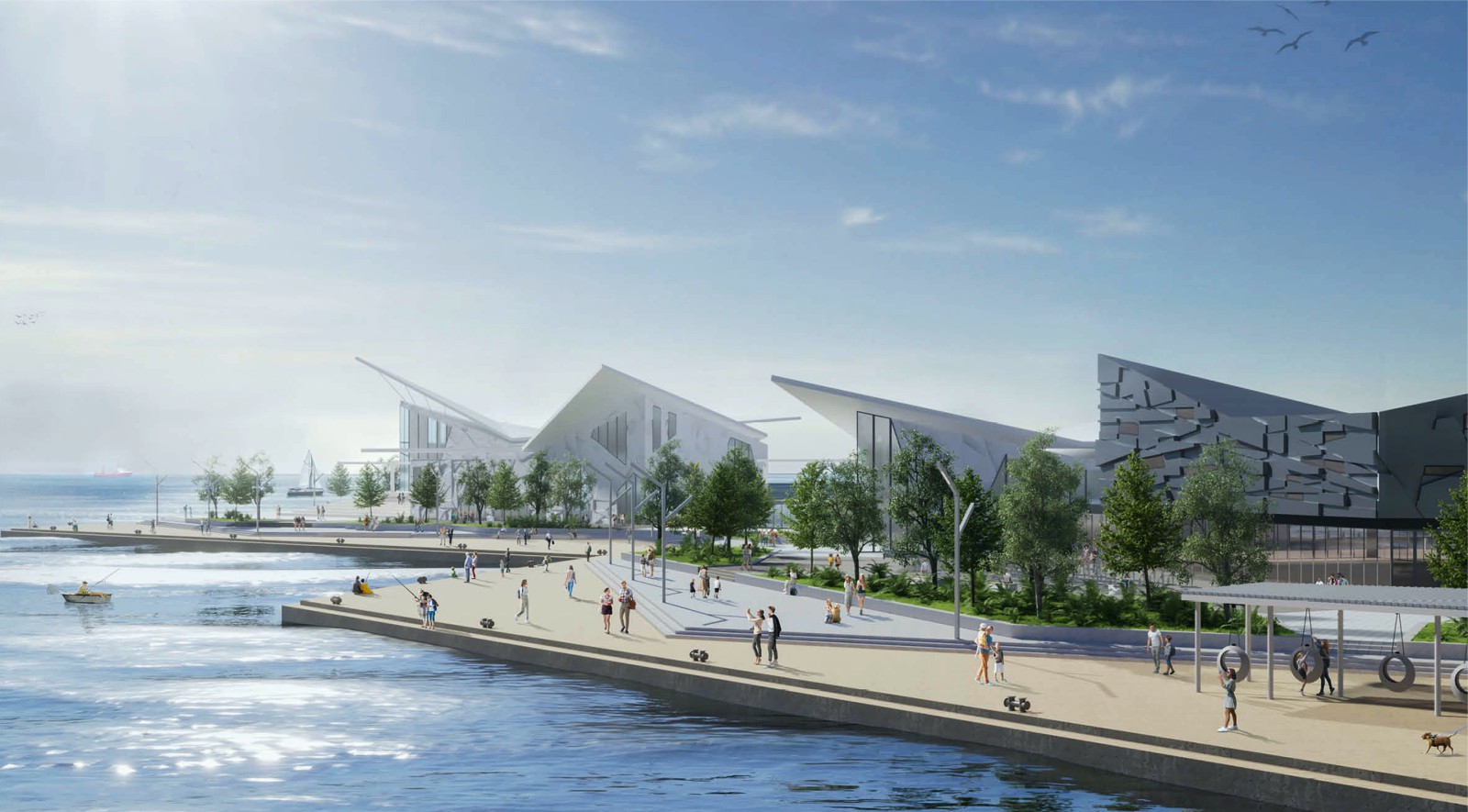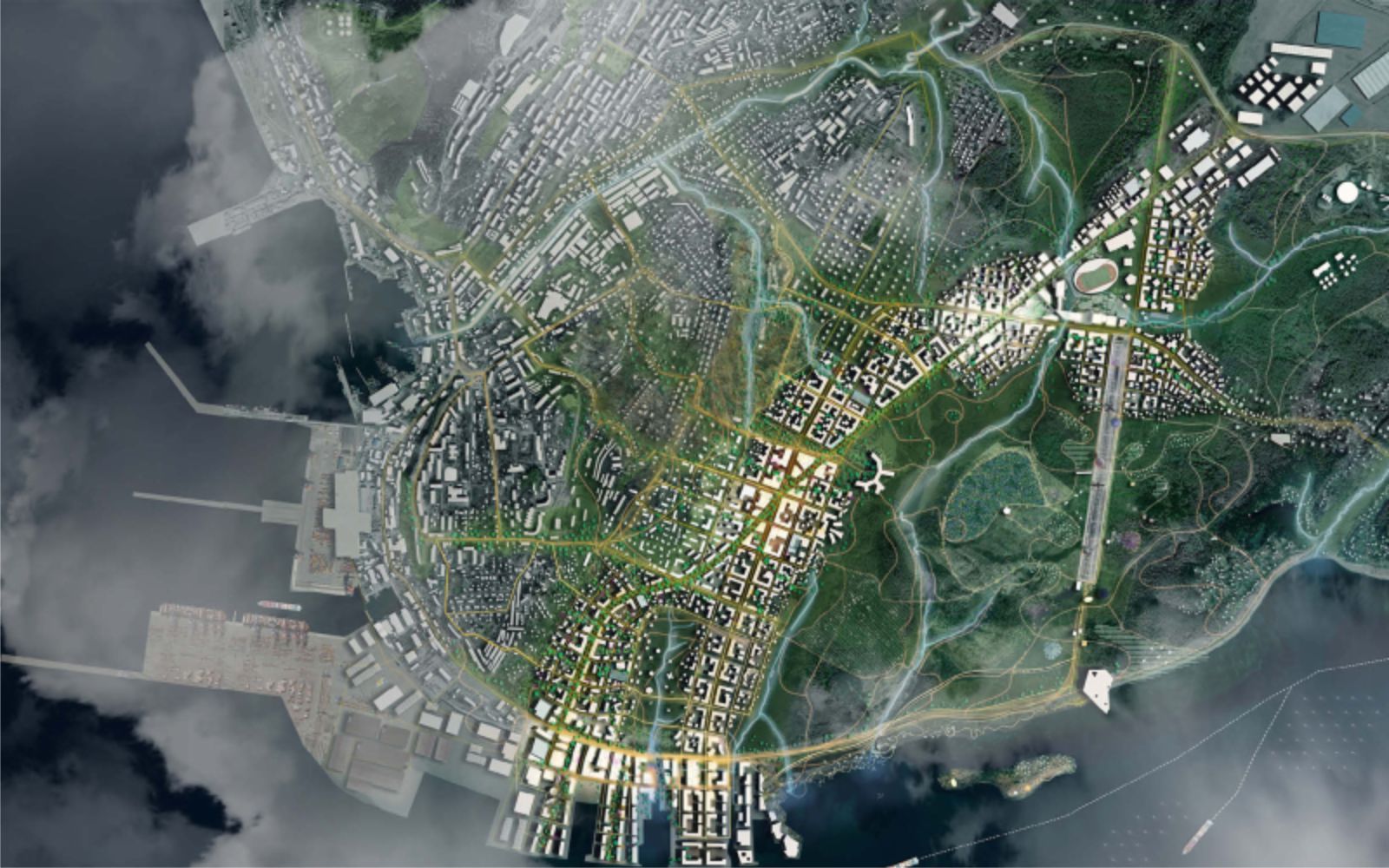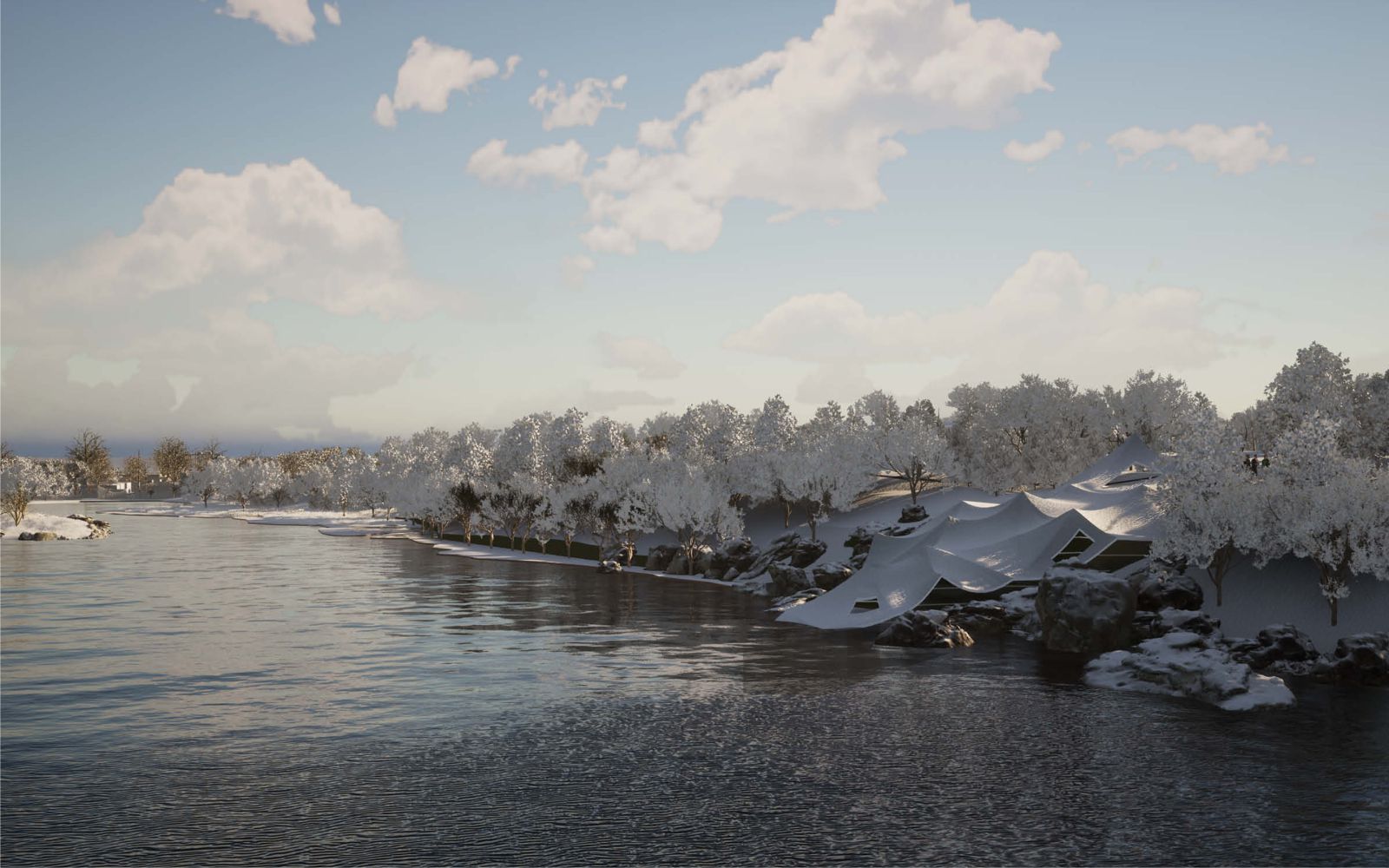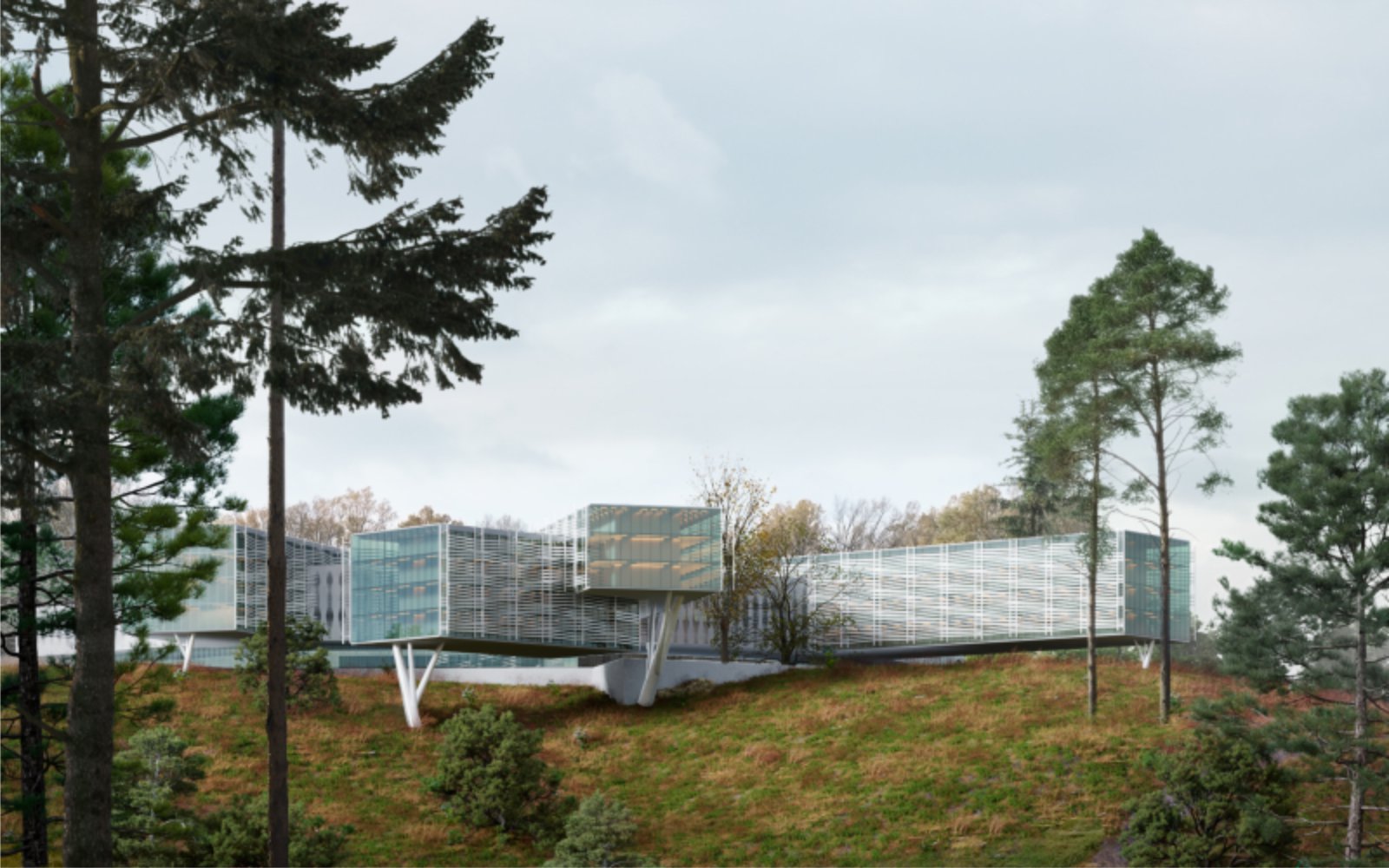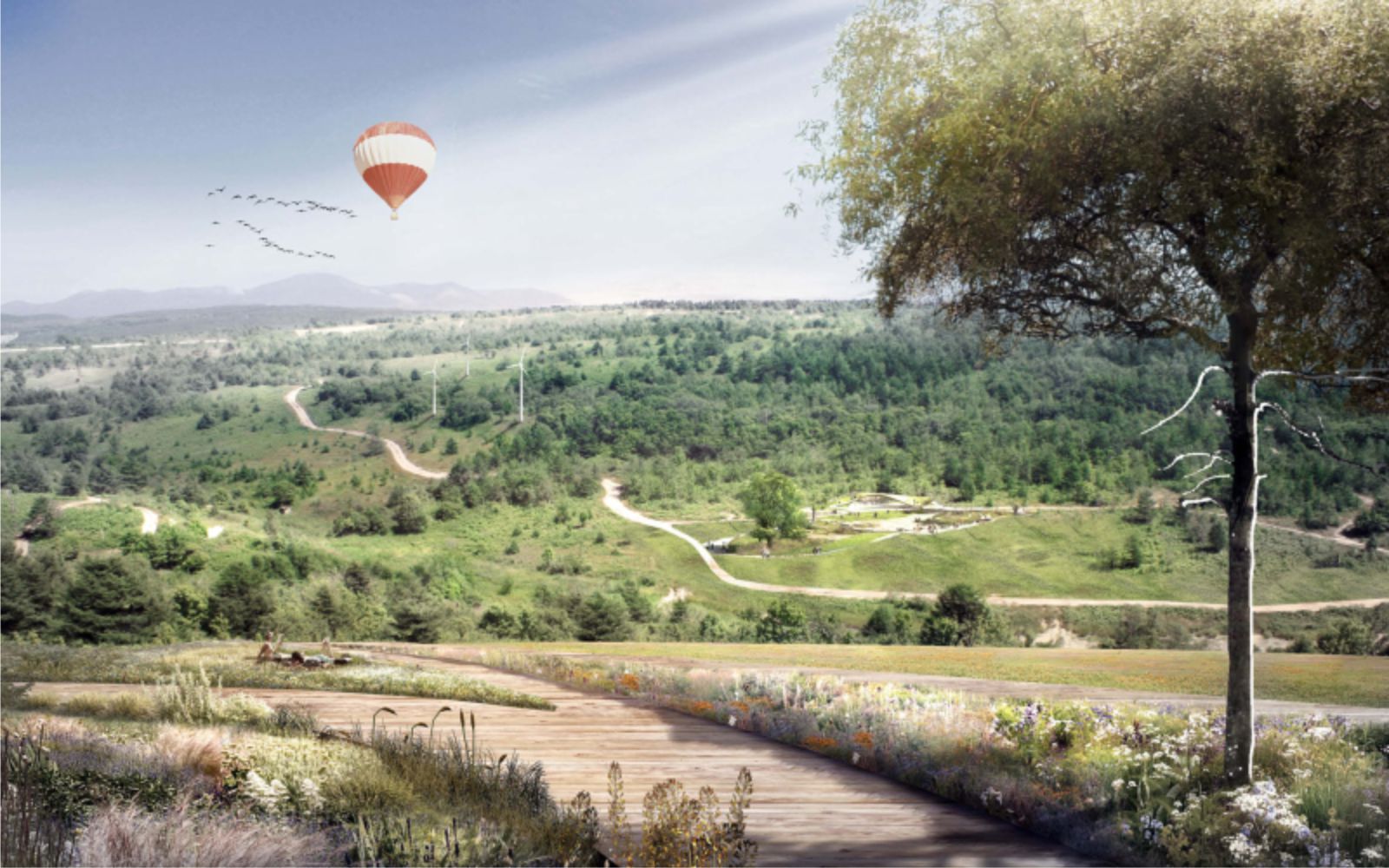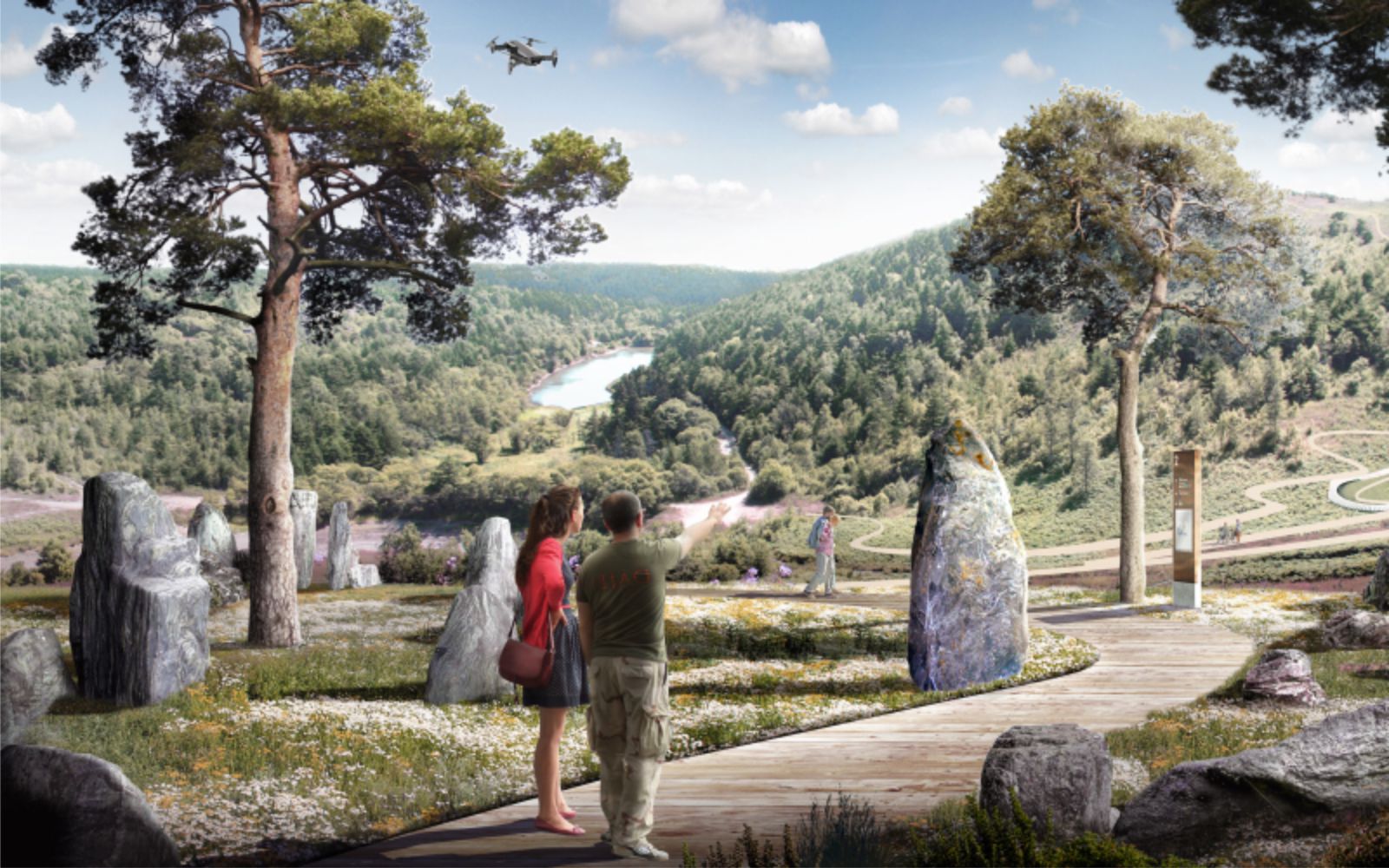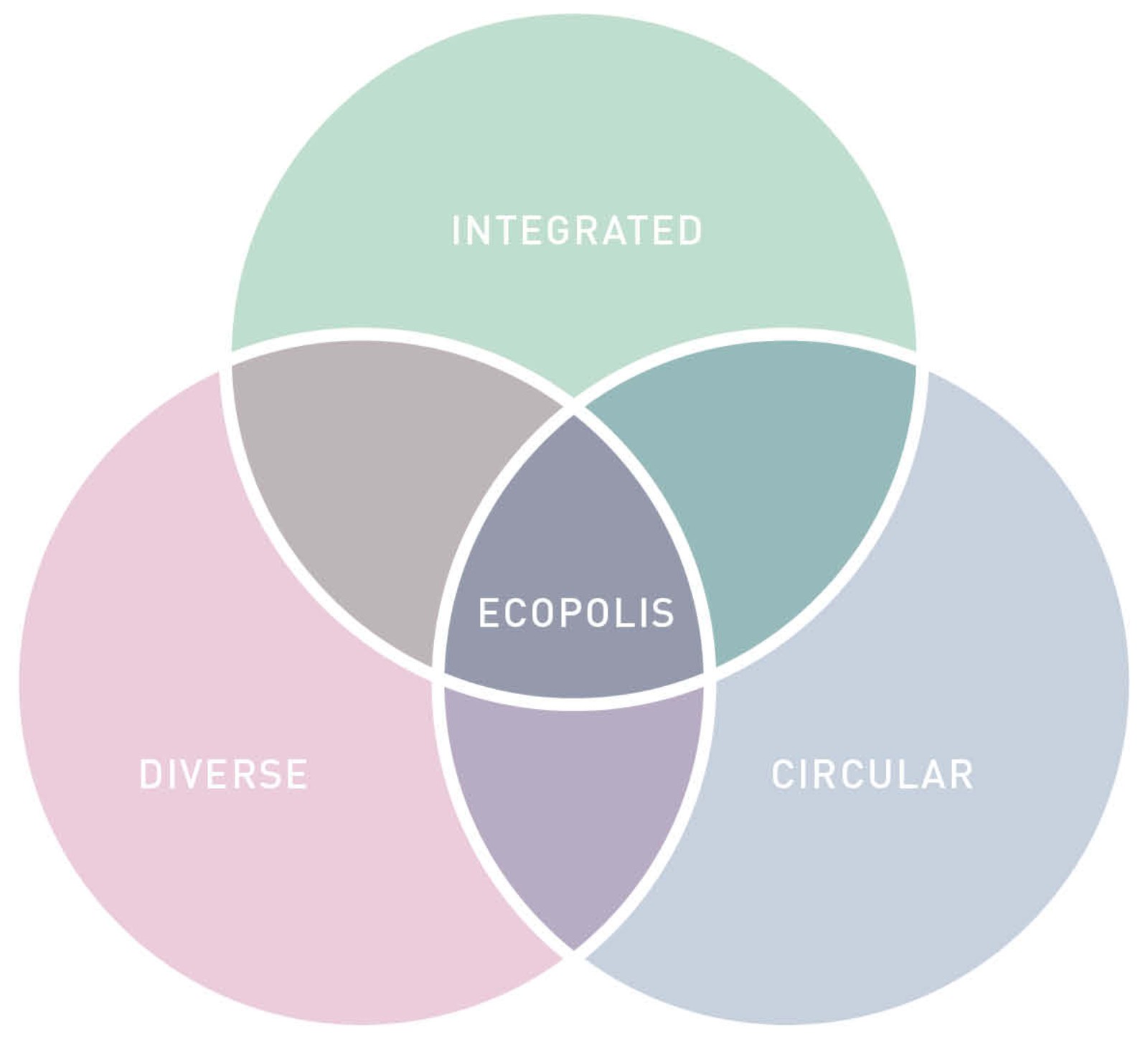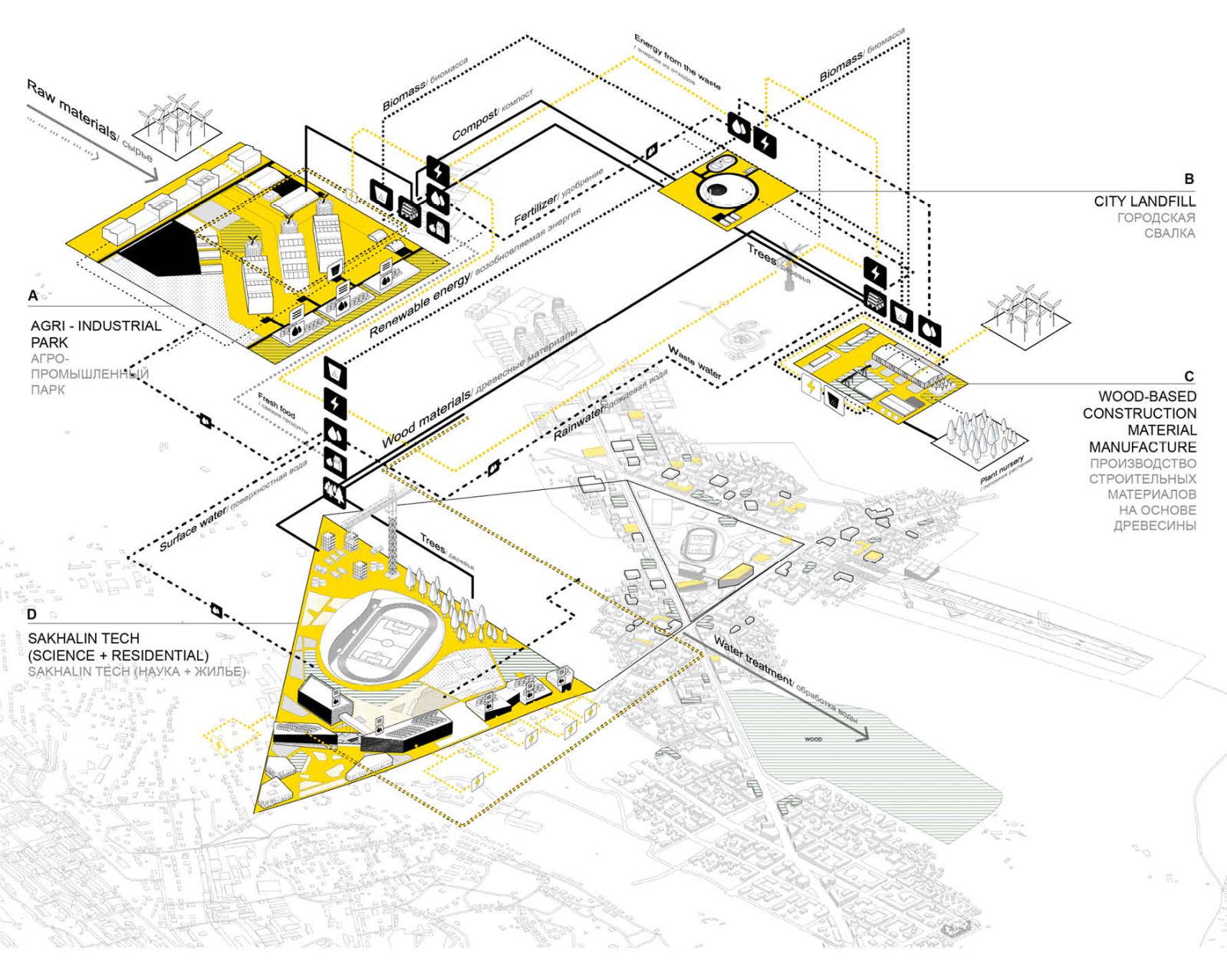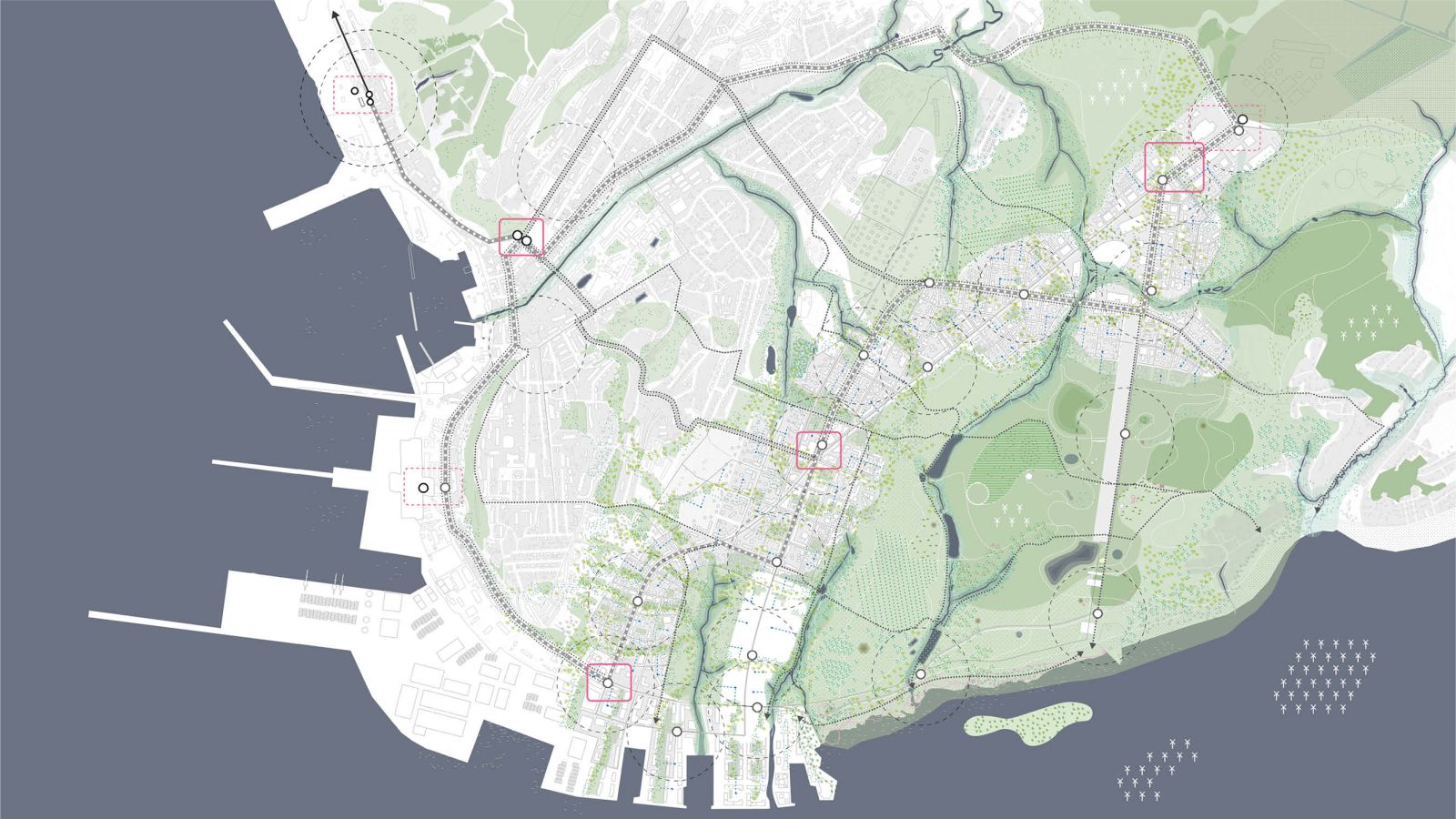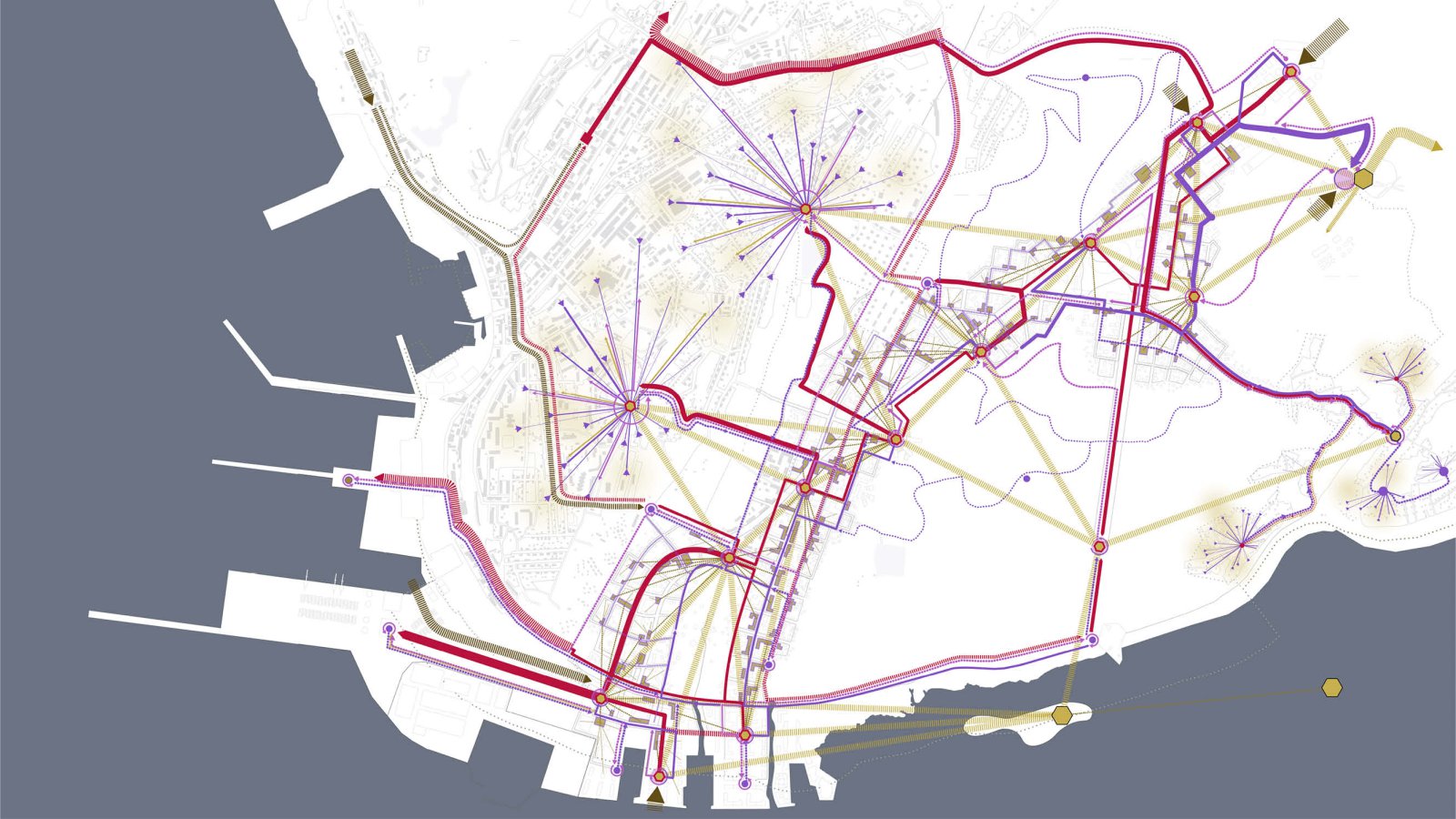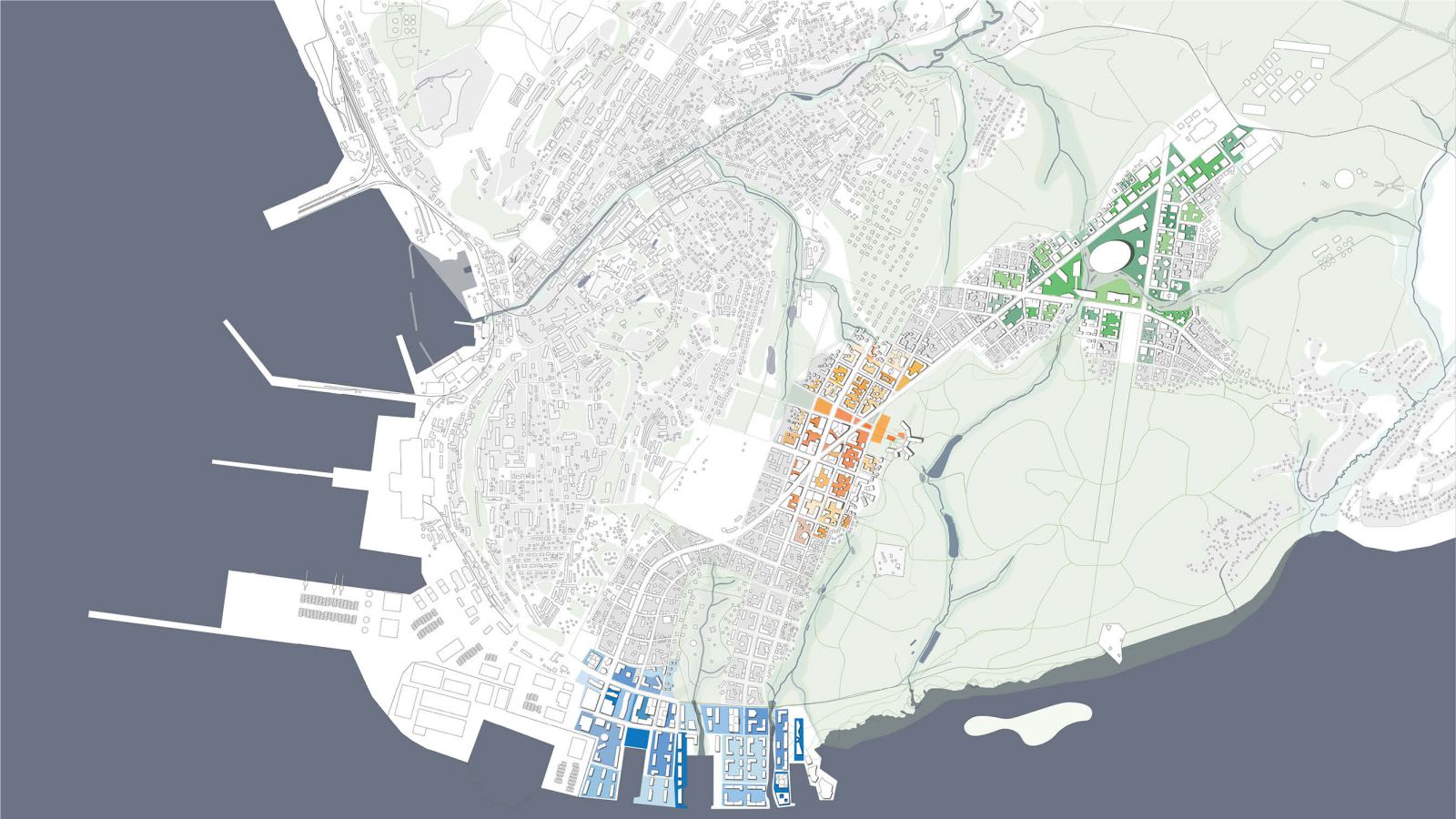With its strategic location North of Japan, and Northern shipping routes between Asia and Europe becoming more relevant due to climate change, the far eastern Federal District of the Russian Federation, Sakhalin, plays a progressively more important role in the global economy. The 600-mile-long island plans to be Russia’s first carbon neutral region by 2025.
To prepare for this role, the region has invited four bespoke planning teams to develop the concept for a new trade hub and eco city in the region, providing residence for 35 000 inhabitants. To develop the city, TSPA partnered with Wowhaus (RU), Nomura Research Institute (JP), and the Scientific Research Institute of Ecology and Sustainable Management of Natural Resources (RU).
The team developed a city model that ensures a economic sustainabilty while staying carbon neutral through integration of circular systems and green energy, at highests standards of living under the motto: Ecopolis is integrated, diverse and circular. The proposal of TSPA and the team was awarded with 3rd place in the international competition “Ecopolis. Concept for a new city in the Sakhalin region”, with a proposal for a new city in the southern part of the island, as an example of an innovative fast developing city in the Asia-Pacific region.
Vision
We imagine a city integrated with the surrounding social, spatial and economic context. It is a city that lives together with the ocean, tapping into its culture through the proximity to the port and an active waterfront. We imagine a city for the people who live it, with vibrant public spaces and innovative architectures, embracing diverse urban typologies, social groups, and public functions.
A city that takes advantage of the rich natural resources surrounding it while respecting them; turns natural threats into values and virtuous circular systems to foster a prosperous and sustainable economy. integration strategy The expansion of the port of Korsakov will turn it into a global hub of maritime transit, providing new economic and commercial opportunities for Russia and the Sakhalin region.
However, the consequences of such transformation hind potential risks of social conflicts, extensive use of environmental resources, and uneven access to the port economies. To ensure the sustainable development of Ecopolis and the future port, they need to grow together and by the surrounding urban agglomeration. This proposal thrives for the spatial integration of Ecopolis with the existing urban fabric of Korsakov, with the topography of this territory, and with the ocean and its economies.
Ecopolis extends following the topographical and natural features of the territory. It develops on top of the hills, away from the steep slopes of the rivers. Its porous and transparent boundaries, welcoming the surrounding forests into the urban fabric. Biodiversity corridors cross the city and complement the built environment with green public spaces. We propose a compact city that minimizes soil consumption and maximizes the areas dedicated to nature, including productive forests, recreational parks, and agriculture fields.
Diversity Strategy
A vibrant city embraces heterogeneous urban spaces, multicultural society, and diverse public functions. We propose three main urban centers – Science, Culture, and Business- where the street network intensifies. Each of them presents unique urban typologies, architectures, and functions. With its laboratories and distributed research campus, Sakhalin Tech takes place in the north center.
Innovative research and industrial park for urban technologies, operating at the regional and national scale. It integrates institutes, residential buildings, and production facilities to combine the research center with high-quality living spaces. At the heart of Ecopolis stands the cultural center, a dense neighborhood provided with vibrant public spaces and cultural facilities such as the public university and the community center.
High- density multifunctional buildings integrate commercial services and residential functions and intensify the city’s urban character. The business center develops along the coast, close to the new cargo port. It provides the residential neighborhoods of the ecopolis with access to the beach and activates the waterfront with workshops and small enterprises.
Circularity Strategy
Sakhalin is an energy-intensive region. Currently, flows of raw materials (oil, gas, natural resources) and manufactured products (food and fisheries) cross the island and are channeled through the port of Korsakov. Ecopolis has the opportunity to capture and reuse these flows.
We propose to convert the Island economy, currently based on non-renewable energy sources, into a value production chain through minimizing transportation of natural resources and maximizing waste upcycling; to make more sustainable use of the row and processed resources while fostering local economies. We propose to connect the existing production flows to turn outputs into inputs of other processes.
A hybrid system of distributed facilities scattered in the city to collect and upcycle inorganic waste produced by the neighboring city of Korsakov and the port. This strategy is combined with a centralized waste processing facility located on the north side of the area where organic waste is heated and converted into electricity.
Part of the output energy flows back to the city. It partially feeds the production sites on the north side of the project area, namely the wood-based materials manufacturing plant, the agroindustry park, and the wastewater treatment plant. These facilities supply the city with construction materials, food, and clean water, reducing imported goods’ environmental and economic externalities. Source and images Coutesy of TSPA.

